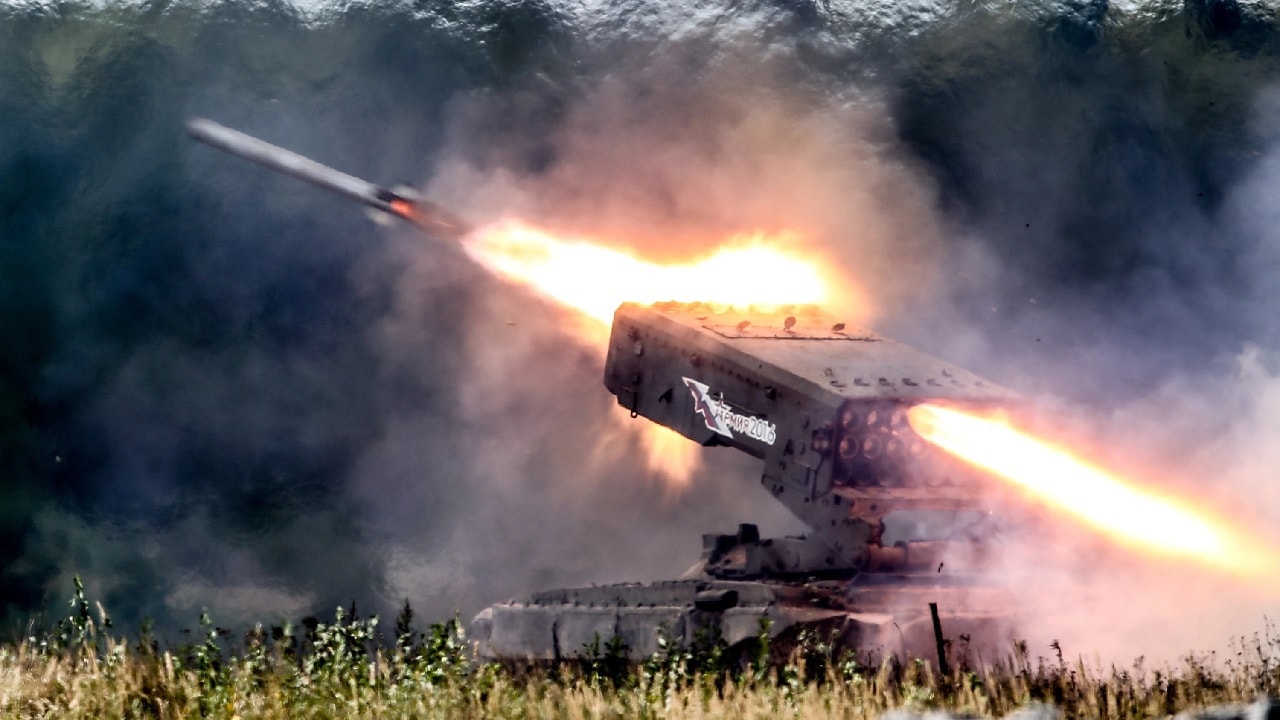As Russia’s aggression against Ukraine continues, a critical issue has emerged that underscores the complexity of war and the unintended consequences of advocacy.
Ukraine’s forces are engaging the Russian invaders along a 1,000-kilometer battlefront, and they are running low on artillery shells. The Ukrainians have appealed to the U.S. to deliver its supplies of cluster munitions, a request that has sparked a contentious debate in Washington and among human rights advocates worldwide.
How Russia Works Through Unintended Advocacy
The advocacy groups’ concerns are rooted in a desire for peace and the promotion of human rights. But their opposition to Ukraine’s request inadvertently aids Russia’s war effort. By influencing Western leadership, these groups have hindered Ukraine’s ability to defend itself. As U.S. Secretary of State Antony Blinken has aptly noted, “If Russia stops fighting, the war ends. If Ukraine stops fighting, Ukraine ends.” This sentiment echoes the message repeatedly shared by the Ukrainian government: Ukraine faces an existential threat.
Russia’s exploitation of foreign NGOs and civil society organizations (CSOs) that are not directly affiliated with Moscow is well documented. Russia has also established connections with far-right movements in Europe such as France’s National Front and the Freedom Party of Austria. These political parties often have affiliated organizations that perform functions similar to NGOs and CSOs. Russia’s support for these movements is often indirect, such as through loans, invitations to observe elections (thus lending legitimacy to disputed results), or access to platforms on Russian state media.
In 2017, U.S. officials stated that Russia had been involved in supporting anti-fracking groups in the U.S. The aim was to protect Russia’s interests in the gas industry, as increased U.S. fracking could decrease Europe’s dependence on Russian gas. However, it is important to note that the extent and nature of this support are disputed.
Russia has also attempted to influence the narrative around its actions by engaging with international human rights NGOs. For example, it has invited such organizations to observe trials in Russia, aiming to lend legitimacy to proceedings many observers see as politically motivated.
A History of Manipulation
During the Cold War, the World Peace Council (WPC), an international organization advocating for peace, found itself entangled in the complex web of international politics. The Soviet Union reportedly used the WPC to advance its foreign policy objectives, turning the organization into a tool of its propaganda machine. The WPC, with its noble cause of promoting peace, unwittingly became a conduit for Soviet efforts to shape global narratives and influence international opinion in Moscow’s favor.
Another historical example that starkly illustrates the potential for manipulation of humanitarian organizations is the relationship between the International Committee of the Red Cross (ICRC) and Nazi Germany during World War II. The ICRC, committed to neutrality and impartiality, knew of the existence of concentration camps and received reports about the atrocities committed there. However, it did not publicly denounce the Nazi regime or take significant action to aid the victims of the Holocaust.
The ICRC’s inaction, influenced by a desire to maintain its neutrality and by the belief that public condemnation would result in retaliation against the prisoners, inadvertently allowed the Nazi regime to continue its genocidal campaign without significant international intervention.
These examples illustrate the complex and often indirect ways in which a regime such as Russia’s can seek to influence or exploit foreign NGOs, CSOs, and other movements to further its geopolitical interests. It’s important to note that such organizations may not be aware of or complicit in Russia’s strategic goals.
Unintended Misery
The irony is that these groups, in their pursuit of peace, may be prolonging the Russo-Ukrainian war and exacerbating the suffering of the Ukrainian people. In a conflict where Russia possesses a larger military and more extensive stockpiles of artillery and armor, limiting Ukraine’s war capabilities can lead to more Ukrainian lives lost and prolonged occupation.
The situation in Ukraine is a stark reminder that the path to peace is not always straightforward. While the use of cluster munitions is a contentious issue, it is crucial to consider the broader strategic implications and the potential for unintended consequences.
In advocating for peace and human rights, it is essential to ensure that these efforts do not prolong conflict or empower aggressors. The Russo-Ukrainian war is a complex issue that requires a nuanced approach — an approach that considers the realities on the ground and the potential implications of well-intentioned advocacy.
The desire to end the Russo-Ukrainian war is a noble one, but it is always crucial to consider the unintended consequences of advocacy. In this case, opposition to Ukraine’s request for cluster munitions might be aiding the very aggressor these groups seek to restrain. It is a stark reminder that in the world of international relations and warfare, the path to peace is often fraught with tough choices.
About the Author
Maksym Skrypchenko, in 2021, commenced his tenure as the President of the Transatlantic Dialogue Center, where he is responsible for leading the organization’s efforts to promote understanding and cooperation between Europe and the United States. Under his leadership, the Center is becoming a leading voice in the transatlantic community, providing expert analysis and recommendations on a wide range of issues.
From 19FortyFive
Video – Ukraine Has Massive New NATO ‘Cannon’ Ready To Fight Russia
‘Americans Will Pay The Price’: One Democrat Is Angry At Joe Biden

